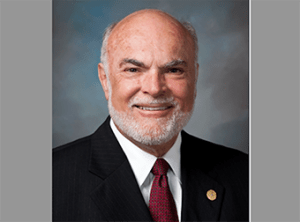BILL WOULD LET CITIZENS VOTE BEFORE ANNEXATION
Published 9:30 am Monday, April 24, 2017
Registered voters in an area targeted for annexation by a city would get a say in the process under a bill tentatively approved by the Senate on Thursday. The bill, SB 715 by New Braunfels Senator Donna Campbell, would streamline private annexation where both parties agree and makes other changes to annexation policy, but the biggest change is the new election requirement.
If a city wants to annex an area that has a population of fewer than 200 people, the bill would require that the city notify by mail every resident of the area within seven days of the decision. The city’s governing body would have to hold at least one public hearing to permit residents to weigh in on the proposal. Then, at least half of the registered voters in an area would have to sign a petition in favor of the annexation for it to go through.
For areas with more than 200 people, the notification and hearing requirements remain, except the city council or governing body would have to conduct two public hearings on the proposal within 90 days of the decision. Rather than a petition, the city would conduct and pay for an election in the area facing annexation and would only go forward if a majority of registered voters living in the area agree. If the election fails the bill includes language forbidding retaliation against the area through the withdrawal of already existing services like water or wastewater service.
Trending
Campbell said she believes that her bill will increase communication and emphasize stakeholder involvement in the annexation process. “It gives a voice to who governs you,” she said. The bill passed a preliminary vote on Thursday and will face a final vote next week.
The Senate also approved a measure Thursday that would offer protection from civil or criminal penalties to Good Samaritans who break into a car on a hot day to rescue a baby or an animal. Texas, with its hot climate and large population, has seen more than 100 children die of heatstroke in hot cars since 1998, according to the department of Meteorology and Climate Science at San José State University. Pets are often victims of heatstroke in a car, where temperatures inside a sealed car can exceed 150 degrees on a 90 degree day.
SB 188, by San Antonio Senator Carlos Uresti, would indemnify a person acting in good faith who breaks into a car to save an animal, child or other vulnerable person. The person would have to call 911 first, to allow experts to help decide if breaking in is necessary and the safest way to do so. Initially the bill only applied to animals, but Uresti said research found that no such protection existed for people trying to rescue children, so they were added into the bill as well. The bill passed the Senate and will head to the House for consideration.
The Senate will reconvene Monday, April 24 at 2 p.m.






